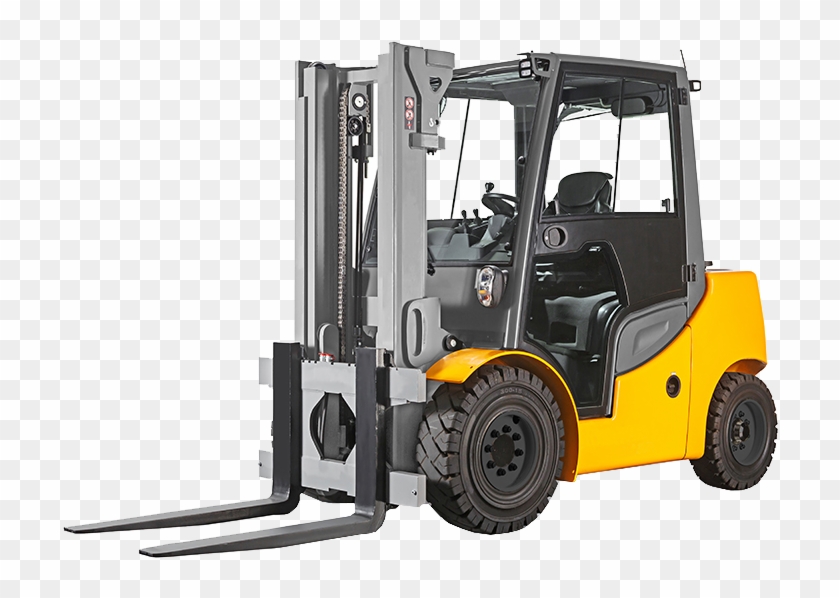Forklift Manufacturing: Trends Shaping the Next Decade
Forklift Manufacturing: Trends Shaping the Next Decade
Blog Article

The forklift manufacturing industry is poised for significant transformation in the coming decade, reflecting the rapid advancements in technology and shifts in market demands. As businesses seek greater efficiency and sustainability, forklift manufacturers are stepping up to meet these challenges with innovative solutions. From electric and automated forklifts to enhanced safety features and connectivity, the trends shaping this sector are indicative of a broader move towards smarter logistics and supply chain management.
As we look ahead, the emphasis on sustainability and environmentally friendly practices will continue to influence the designs and functionalities of forklifts. Manufacturers are increasingly integrating eco-friendly materials and energy-efficient power sources, aligning with global initiatives to reduce carbon footprints. Furthermore, automation and the Internet of Things are redefining how warehouses and distribution centers operate, pushing forklift manufacturers to innovate and adapt their offerings to remain competitive in a fast-evolving marketplace.
View Details
Emerging Technologies in Forklift Manufacturing
The forklift manufacturing industry is witnessing a transformative shift driven by the integration of emerging technologies. One significant advancement is the development of electric forklifts, which offer a cleaner and more efficient alternative to traditional internal combustion models. With growing environmental regulations and a push for sustainability, manufacturers are focusing on battery technology improvements, enabling longer run times and quicker charging solutions. This transition not only reduces carbon footprints but also lowers operational costs for businesses.
Automation is another trend reshaping forklift manufacturing. The introduction of automated guided vehicles and autonomous forklifts enhances operational efficiency by minimizing human error and optimizing warehouse processes. These self-driving units can navigate complex environments, allowing companies to maximize productivity and address labor shortages. As manufacturers invest in smart sensors and navigation systems, the future of forklift technology is leaning heavily towards automation and intelligence.
Data analytics and the Internet of Things (IoT) are establishing a new era in forklift manufacturing as well. By equipping forklifts with IoT technology, manufacturers can gather real-time data on performance, usage patterns, and maintenance needs. This information not only supports predictive maintenance strategies that reduce downtime but also enables manufacturers to refine their product offerings based on user feedback and operational insights. As data-driven decision-making becomes the norm, forklift manufacturers will continue to innovate and adapt to meet the evolving demands of their customers.
Sustainability and Environmental Considerations
As the world becomes increasingly aware of the environmental impact of industrial operations, forklift manufacturers are stepping up to implement sustainable practices. This includes the development of electric and hybrid forklift models that reduce emissions and decrease dependence on fossil fuels. By prioritizing energy-efficient technologies, manufacturers are not only appealing to eco-conscious customers but also aligning with global regulations aimed at reducing carbon footprints.
In addition to focusing on clean energy solutions, forklift manufacturers are also evaluating their production processes. Embracing lean manufacturing principles and sourcing materials sustainably minimizes waste and maximizes resource efficiency. This shift towards greener methods is essential for manufacturers seeking to enhance their corporate responsibility and appeal to businesses that prioritize sustainability in their supply chains.
Moreover, manufacturers are increasingly offering recycling programs to ensure that end-of-life forklifts are disposed of responsibly. This initiative keeps harmful materials out of landfills and allows valuable components to be reused or refurbished. By integrating sustainability into their business models, forklift manufacturers are not only contributing to environmental preservation but also positioning themselves as leaders in an evolving market that values eco-friendly solutions.
Market Trends and Consumer Demands
The forklift manufacturing industry is experiencing significant shifts driven by evolving consumer needs and market dynamics. As businesses prioritize sustainability, there is an increased demand for electric and hybrid forklifts. Manufacturers are responding to this trend by investing in advanced battery technologies and innovative designs that enhance energy efficiency. This shift not only aligns with global environmental goals but also helps companies reduce operational costs in the long run.
In addition to sustainability, automation and smart technology are becoming crucial factors in consumer decision-making. Forklift manufacturers are integrating features such as telematics, machine learning, and robotics into their products. These advancements not only improve safety and operational efficiency but also provide real-time data analytics, which help businesses make informed decisions. As more warehouses and logistics companies embrace automation, the demand for high-tech forklifts is expected to surge.
Customer preferences are also shifting towards flexibility and customization. Forklift manufacturers are recognizing the need to offer a diverse range of options tailored to specific industries and applications. This includes customizable attachments, varying load capacities, and adaptable designs that can handle different environments. As businesses seek solutions that can meet their unique requirements, manufacturers must stay agile and responsive to these changing consumer demands to maintain their competitive edge.
Report this page